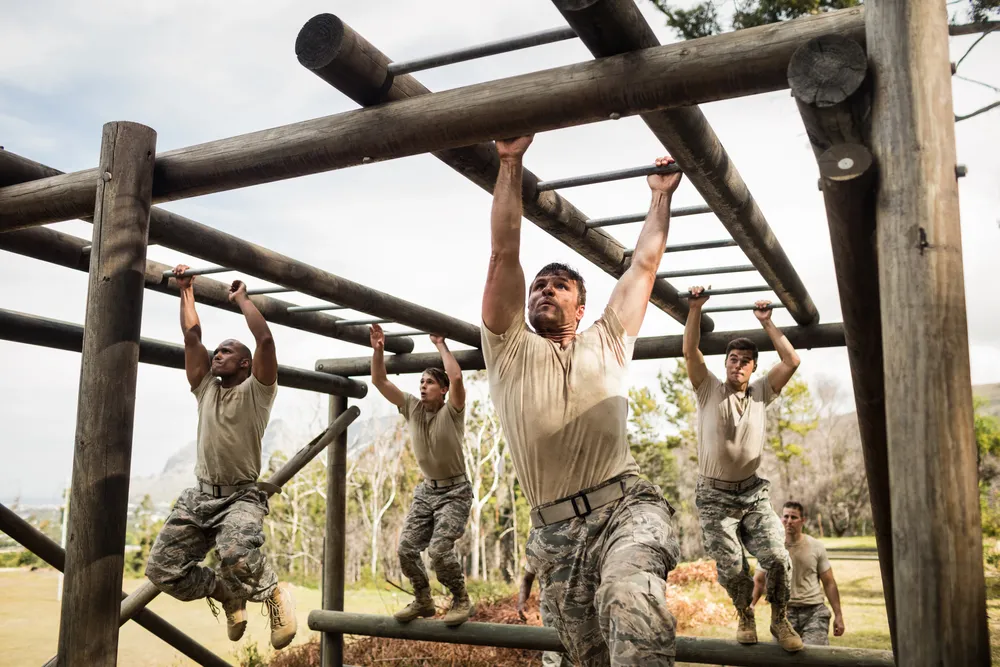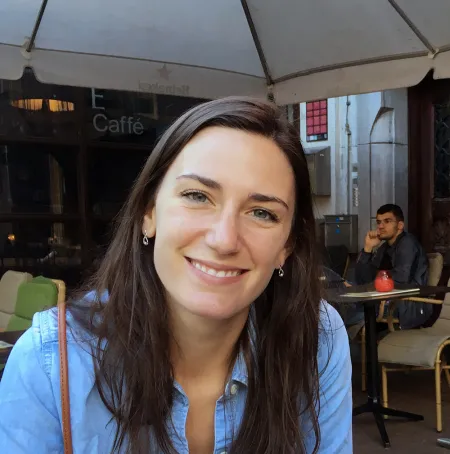Editor's note: This is the fifth installment in a 6-part series that also appeared in the spring issue of ICView. Read “Mind Games” to learn how two alumni helped major league teams to World Series titles, and read “Keeping Focused Amid Chaos”to find out how an alumnus is helping minor league players in Latin America. Read "Staying Sharp Despite the Grind" to learn about MLB player Tim Locastro '18, and read "Forging Olympic Mettle."
Winning The Battle Of The Brain

Sydney Masters, MS '17, works as a cognitive performance coach with soldiers aspiring to join the ranks of the U.S. Army's Special Forces. She previously interned with the Cleveland Indians.
Long before their heroism becomes legend, long before they don that coveted Green Beret, they are soldiers trying to pass a qualifications course.
In many of their minds, failure is not an option, but in the Special Forces selection process, failure of some sort is an inevitability, especially on these courses. That’s literally where Sydney Masters, MS ’17, steps in. Even if it’s in a muggy and buggy pine forest in Fort Bragg, North Carolina.
Whether in the field or in classrooms or even one-on-one, the cognitive performance coaches at Fort Bragg use a proactive approach to help aspiring members of the U.S. Army’s Special Forces enhance their mental performance for their jobs. Masters has a unique perspective, because she works with soldiers who have failed to meet the standards and are trying to get back in the program.
“These soldiers aren’t used to failing. Sometimes you can see them struggling, and other times you just know that internally it’s eating away at them,” she says. “What they do after that adversity defines what they’ll continue to do. Will they push forward? Will they attack it? Will they try to find another way?” They could also fail to reach standards or quit.

Sydney Masters, MS '17.
Sometimes it comes down to motivation or willpower, which is challenging because it is an intangible concept, yet so powerful. But it can be influenced by the circumstances involved in the various situations soldiers encounter.
“These courses are so rigorous that they have to go in highly motivated, but that’s not to say it doesn’t wax and wane as they fail and succeed,” she says. For Masters herself, success is occasionally a struggling soldier who has an a-ha moment in the field, but more often, that’s just where it starts.
“If our conversation sparks something in them two weeks, a month, or a year from now, good. Our job is to start that process. We have to ask the right questions, present concepts they may never have associated with their performance, and provide trainings to elicit internal dialogue that helps them build more self-awareness. Then, they can ask those questions of themselves: How are they viewing their internal and external experiences? What makes them tick? What do they value?”
Even when a soldier is doing well, self-awareness then can help them later, when failures do arise.
“When they are crushing it, instead of letting it just be a fleeting moment that they enjoy, let’s help them understand what’s going on in that successful moment, so they can maybe recreate it when they need to.”
As Masters is not in the military herself, she says being a confidential third party helps strong soldiers talk about their weaknesses.
“It lets them be vulnerable and tell me things that they might not feel comfortable telling anyone else,” which she says gives her an insider’s look into their development. “It’s beautiful to watch somebody as they mature and overcome something that had prevented them from performing well.”